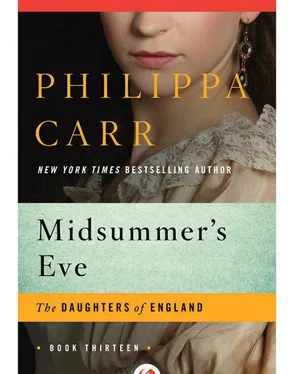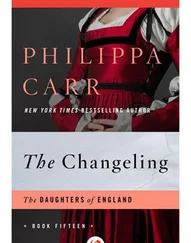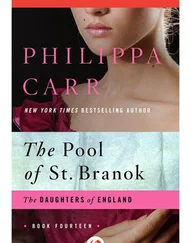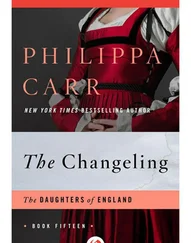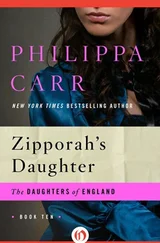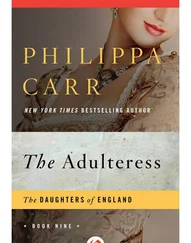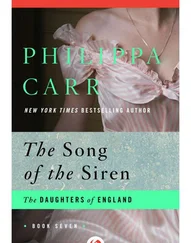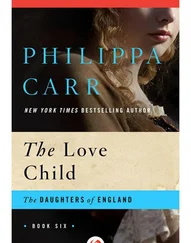We rode together—galloping along the beach. We went out onto the moors where we would tether our horses and lie in the long grass looking down on the tin mine which was a source of income to so many people thereabouts. Our community consisted mostly of miners or fishermen and those farmers on the Cador estate.
So one long summer day passed into another and the sun seemed to shine more brightly every day.
People grew irritable.
“Get out of my kitchen, Miss Annora,” said Mrs. Penlock. “You be forever under my feet, that you do.” And I was never given a cake or a scone fresh from the oven as I’d been accustomed to. It was too hot for baking in any case.
I hated to be banished from the kitchen because there was more talk than ever at this time about Mother Ginny.
We were approaching Midsummer’s Eve. This was always a special occasion. Rolf, who had been away, returned from visiting one of his college friends in Bodmin who shared his interest in antiquity. He talked to me enthusiastically about some stones they had discovered on Bodmin Moor. I mentioned to him that there was a growing feeling in the community against Mother Ginny.
“It’s natural,” he said. “The Cornish are very superstitious. They cling to old customs more than is done in other parts of the country. It is probably the Celtic streak. The Celts are certainly different from the Anglo Saxons who inhabit the main part of our island.”
“I suppose I’m only part Celtic through my father.”
“And I pure Anglo Saxon if you can call such a mixture pure.”
I knew, of course, that Rolf’s parents had come to Cornwall when he was five years old. He had been born in the Midlands. But he knew a great deal more about the Cornish than they seemed to themselves; and perhaps he was able to study them more dispassionately because he was not really one of them.
There were fascinating talks about old customs. He told me how most cottagers even now crossed the firehook and prong on their hearths when they went out, which was supposed to keep evil spirits away during their absence, and how the miners left what they called a didjan—a piece of their lunch—for the knackers in the mines. The knackers were supposed to be the spirits of those who had crucified Christ. “Though how there could have been enough people at the Crucifixion to populate all the mines of Cornwall, I can’t imagine,” said Rolf. There were the black dogs and white hares which were supposed to appear at the mineheads when there was to be a disaster. No fisherman would mention a rabbit or hare when at sea; and if they saw a parson on their way to the boats they would turn back and not go to sea that day. If they had to mention church they could call it the Cleeta, which meant a bell house—to say the word “church” being unlucky.
“How do these things come about?” I asked.
“I suppose something unfortunate happens after they have seen dogs or hares or have met a parson when they were setting out for the boats. Then it becomes a superstition.”
“How very foolish.”
“People often are foolish,” he told me with a smile. “Of course there are a good many customs they practise which go back to pre-Christian days. Midsummer’s Eve activities for instance.”
“I know. Mrs. Penlock would say, ‘’Tas always been done and reckon it always will be.’”
I loved to listen when he talked of these Cornish customs.
For as long as I could remember we had always been taken by our parents to see the bonfire on the moors. My father would drive us out, and Jacco and I, with our parents, would watch the fires spring up, for if it was a clear night we could see them for miles along the coast.
For days before, the preparations would be made. Barrels were tarred and thrown onto the pile of wood and shavings, and a thrill of anticipation ran through the neighbourhood. There would be dancing, singing and general rejoicing.
Rolf had told me that it was said to be St. John’s Festival but it really had its origins in the old pagan days; and people practised the rites without knowing what the original intentions had been.
Dancing round the fire, he said, was a precaution against witchcraft; and it was something to do with fertility rites which people often practised in the old days. To leap through the fire and get one’s clothes singed meant that one was immune from the evil eye for a whole year, when, I presumed, the act must be performed again. There had been accidents and there had been one girl who had been badly burned. That was said to be a triumph for witchcraft; and it was after that when my father had said there was to be no more leaping over the flames.
It had always been a great treat for Jacco and me to stay up late and set out for the moors with our parents, my father driving the two big greys. I still remember the thrill when the torch was flung into the piled-up wood and the cry of triumph which went up as the flames burst forth.
We used to watch people dancing round the fire. No one attempted to leap over while we were there. I sometimes wondered whether they did when my father was no longer watching.
About half an hour after midnight we would drive home.
“I hope they’ll be home for Midsummer’s Eve,” I said to Jacco.
We had ridden out to the moors and were lying in the rough grass sheltered by a boulder.
He put on his bravado look. “If not we’ll go by ourselves. We can ride out.”
“What! At midnight!”
“Afraid?”
“Of course not.”
“Then why not?”
I realized that he had just thought of that and no doubt said it hastily; now his jaw was set and that indicated determination.
“We’re not supposed to,” I reminded him.
“Who said so?”
“Mama … Papa …”
“They’re not here to say. We haven’t been told not to.”
“No. Because nobody thought of it.”
“If you’re afraid to come I’ll go by myself.”
“If you go I’m going with you.”
He plucked a blade of grass and started to chew on it. I could see he was already making plans for Midsummer’s Eve.
Thinking of it brought Mother Ginny to mind. I said: “Jacco, do you believe Mother Ginny is a real witch?”
“I expect so.”
“Do you think she is ill-wishing people here?”
“She could be.”
“There was the mare and Mrs. Cherry’s baby and everything going wrong. I’d like to know.”
He agreed that he would too.
“They are all getting scared,” he said. “I heard Bob Gill telling young Jack Barker not to forget to leave a didjan for the knackers before he went down the mine. It’s Jack’s first week there and he looked really scared.”
“Rolf says they’re scared because theirs is a dangerous job. Like the fishermen. They never know when something awful will happen underground or when the sea will turn rough.”
Jacco was silent, still brooding on our coming adventure. “We’ll have to be careful,” he said. “You don’t want Miss Caster to interfere.”
I nodded. Then I said: “It’s time for tea.”
“Let’s go.”
We mounted our horses and left the moor behind us. As we came down to the harbour we were immediately aware that there was more than the usual activity.
People all seemed to be talking at once.
“What’s happened?” called Jacco.
I was always interested in the manner in which the people treated Jacco. He was only a boy—two years older than I was in fact—but he was the heir of Cador and would be the squire one day. They wavered between contempt for his youth and respect for the power which would one day be his.
Some of them looked away but Jeff Mills said to him: “There be trouble with one of the boats, Master Jacco.”
Читать дальше
